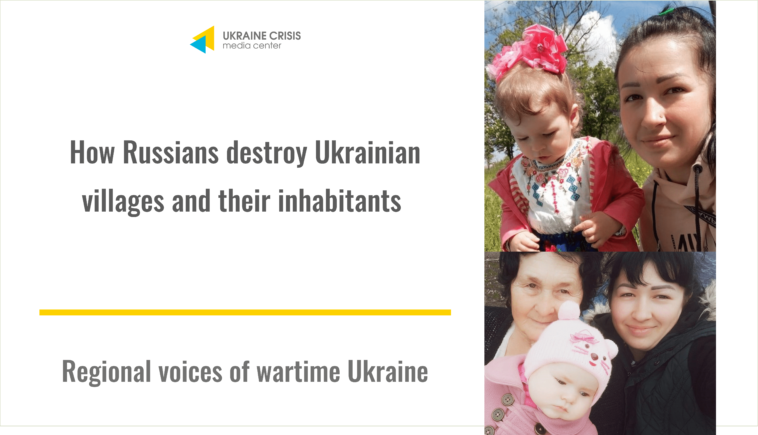Typically, the news focuses on the names of Ukrainian cities destroyed by the Russians. But villages die quietly. It happened during the Holodomor of 1932-1933. It happened in 1986, when the villages around the Chornobyl NPP were suddenly deserted. People’s animals suffer along with them. The land that used to feed half the world is covered with weeds… Words cannot describe all this pain. As you listen to the stories of the villages destroyed by the Russians, you come to understand the meaning of the term “crime against humanity.” It is a crime against life itself.
In the spring of 2022, people from small towns and rural areas of the Zaporizhzhia and Kherson regions arrived in Zaporizhzhia, following the people from Mariupol, who were almost going crazy after the horror they had experienced. Young families took their children away. At that time, our Always Together volunteer headquarters distributed clothes and products to mothers with children. We comforted hundreds of children with toys, sat next to them with books, coloring books, subconsciously trying to drive away the horrible memories by playing games.
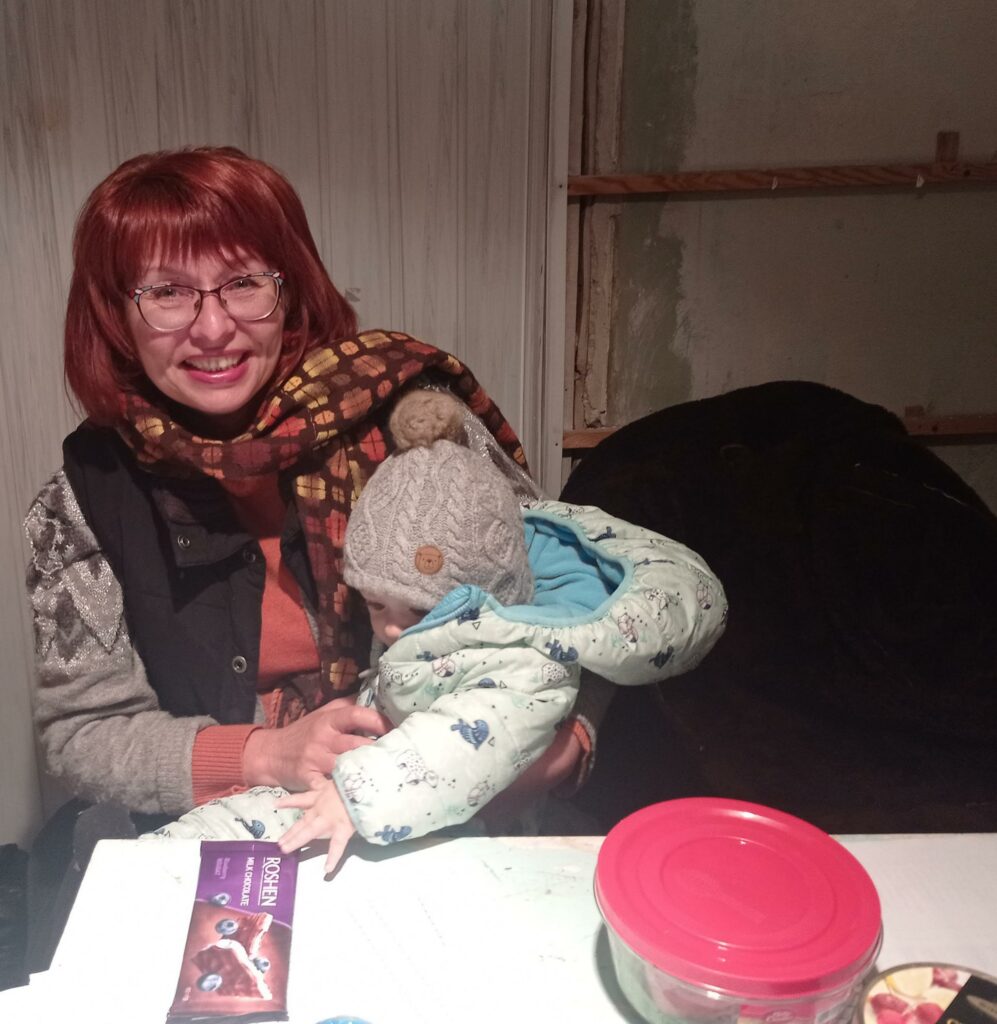
That was when I heard: “There’ll be no more the village that there used to be… It is being uprooted…”
Nevertheless, the roots held on for a while… Older people stayed behind, often near their parents’ house, cows and chickens. “We held on to our family graves…”
In May, my mother’s milkman Yura called me from Kryvyi Rih. Previously, three times a week, neighbors and those who came to Nova Kakhovka to visit or vacation met in a queue at his marketplace. I close my eyes and see that picture, feel the taste of that milk.
…When the Russians occupied the village where Yura lived, they came to him right away: “Where’s the money?” That night, Yura gave away cows to his neighbors, got into a car with his assistant (he never had his own) and drove away.
What money? His father’s house and cows were all he had. And hands that smell of milk… Yura himself was like a milk spirit – blond, snaggle-toothed, always smiling and friendly: “Do you want morning or evening milk?”
There was also a lady named Nadiya at that market who we used to talk to about everyday things.
“I wish I could get a dog like that,” she said, looking at a dachshund, “because cats come running from all over the village when I pour milk. I feed them, but if I had a dog, they’d sit on the fence for a while, waiting for me to pour it for them…” There’s no one to ask about Nadiya’s fate. All the people I knew who used to take milk from her died or left…
When I later talked to Olha Zastavska, head of NGO Women Farmers, I heard that about half of her colleagues remained in the occupied territory. Agriculture is a process that cannot stop overnight. There is no one to give away the cows, you can’t put a lock on a dog’s face, you can’t chase away a cat…
But the price for human loyalty is inhuman today. You go through stories like rosary beads, and each of the beads is covered in blood.
A farmer from Shcherbaky in the Vasylivka district, the Zaporizhzhia region, held on as long as he could. He used to feed Ukrainian soldiers in the basements of destroyed houses, bury the dead together, trying to identify and remember the place… He saw his house and barn fall to pieces from shelling… He told us how wild, abandoned pigs ran around the village.
So he brought his herd of cows and the pigs he could catch to Orikhiv. But there was no peace there – near Orikhiv, of which only half remained, and even that was under constant shelling. Where are those cows now? If only they weren’t in the occupation, because they would immediately be put to death there. I no longer see the Vasylivka milkman at our Zaporizhzhia market, and I don’t know whether he left or quit his business.
Another bead is like a clot of baked blood.
Tetiana, a member of the NGO Women Farmer, says: “Rozivka district. The occupation authorities tell our farmer: “There’s no private property in Russia, all your property goes to the state.” To prove that this is not true, the farmer gathers all his shareholders, prepares documents, goes to the occupation authorities, to Rozivka, submits them… And when he returns home, a missile hits his house. Of course, not ours… From the Russian side. The house, all the documents – everything burned down. He’s in intensive care, his wife’s in intensive care, their child’s dead… And that’s it. Now everything is theirs…”
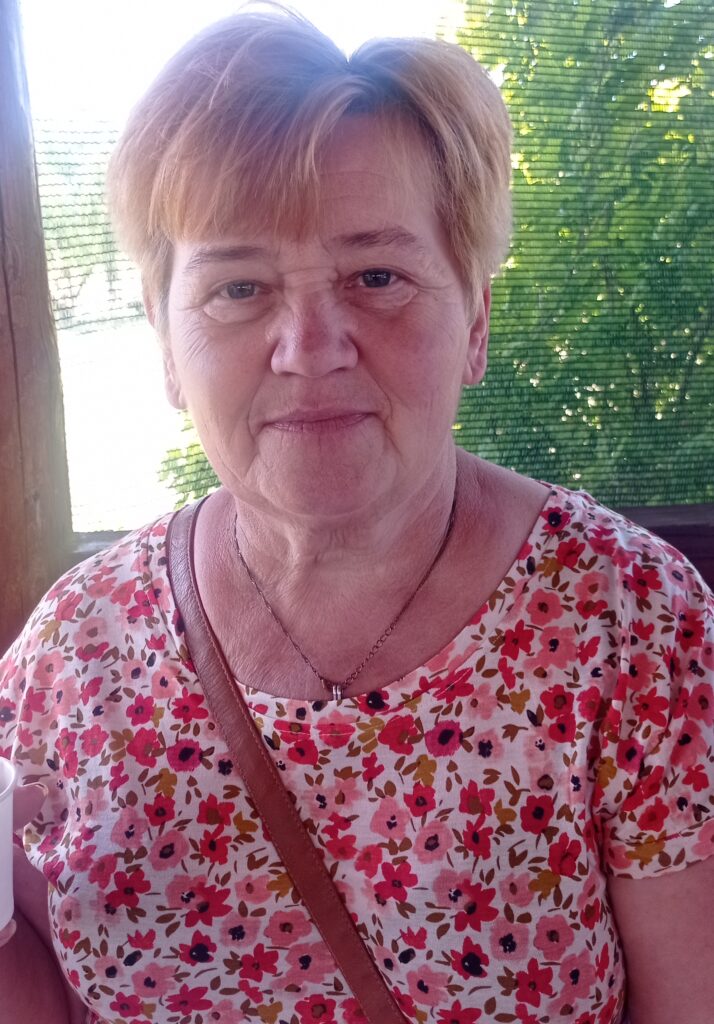
“I know about a guy from Polohy who stayed in occupation with his mother, on the farm,” said our volunteer Olha. “He is an ATO member, a volunteer. When he got into the occupiers’ “basement” for the first time, he returned and told his mother: “No, I can’t stand such abuse…” And he hanged himself at night… And he was his mother’s only son.”
The steppe, land, home, work don’t let people go….
“Nina Samovidova, 59, died on May 24, 2022 in Fedorivka, the Polohy district, the Zaporizhzhia region. She was born in Voskresenka, the Zaporizhzhia region. She was an English teacher at Fedorivka school… That day she was returning home from tutoring. She was riding her bike when she came under fire. A fragment hit the woman in the head, her arm was severed… The injuries were incompatible with life… The teacher was buried at the Fedorivka cemetery. She is survived by her son, brother and sisters…” – it is just one entry from the Memorial: killed by Russia… Lilya Stepanenko, who joined our volunteer headquarters in the spring of 2022, is also from Fedorivka. She left during the last months of her pregnancy. She managed to save the child and gave birth to a boy in April. She led the older child by the hand, crying: “My son was born so tiny, my daughter was almost twice as big!”
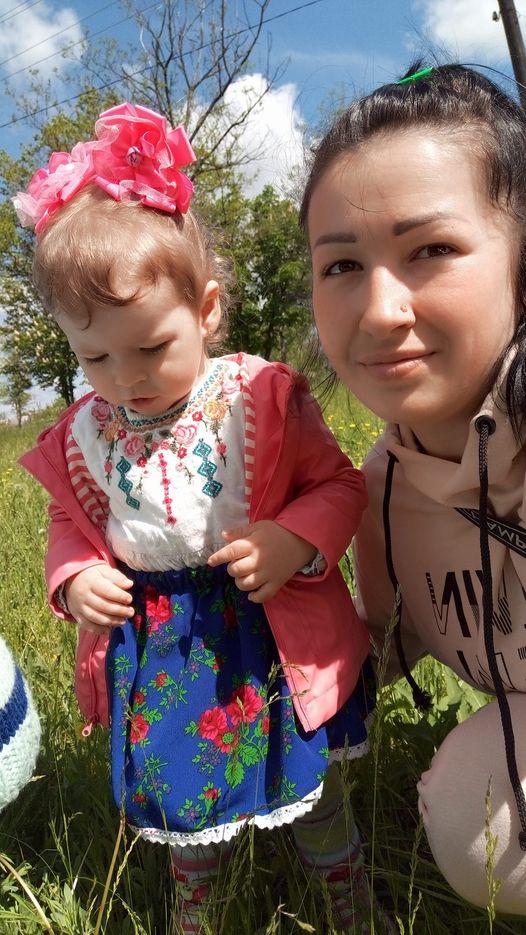
We got busy… We received baby clothes from benefactors in March 2022, and it was a special pleasure to choose them together with the mom. Lilya’s father and mother remained in her native village. They couldn’t leave their home – they were unable to tear themselves away from the land. “And then there are cows…” Lilya said as if apologizing. We made friends and provided diapers, baby food, and seasonal clothes whenever we could.
We held so many kids in our arms, played with, trying to pass on our warmth! And we worked in a cold basement then. How many people in trouble we saw! How many stories we heard and how many tears we wiped away…
These refugees’ memories and words sting the eyes like the salt of tears: “No, we don’t need so much, someone else may need it… We don’t know where we’ll be tomorrow.”
There are no people from Mariupol left here, they moved as far as possible – because it hurt them so much to have their city destroyed and their relatives and friends killed…
People from Zaporizhzhia and Kherson remained here more often. As long as Vasylivka let people go through, there was a stream of cars, buses, mostly sprinters, often battered, as if wounded by bullets, without windows. Thank you for escaping, for being alive…
In the summer of 2022, we were impressed by a group of people from a Donetsk village on the border with Russia. There were at least thirty people. They stuck together. We gave them bags of food and sometimes asked them: maybe you need bedding, detergents, we have something… One woman almost groaned in response: “If you knew what we left behind… We had everything there…”
Whenever possible, we provided targeted assistance to large families and new mothers – more than a hundred of them were registered at our headquarters alone!
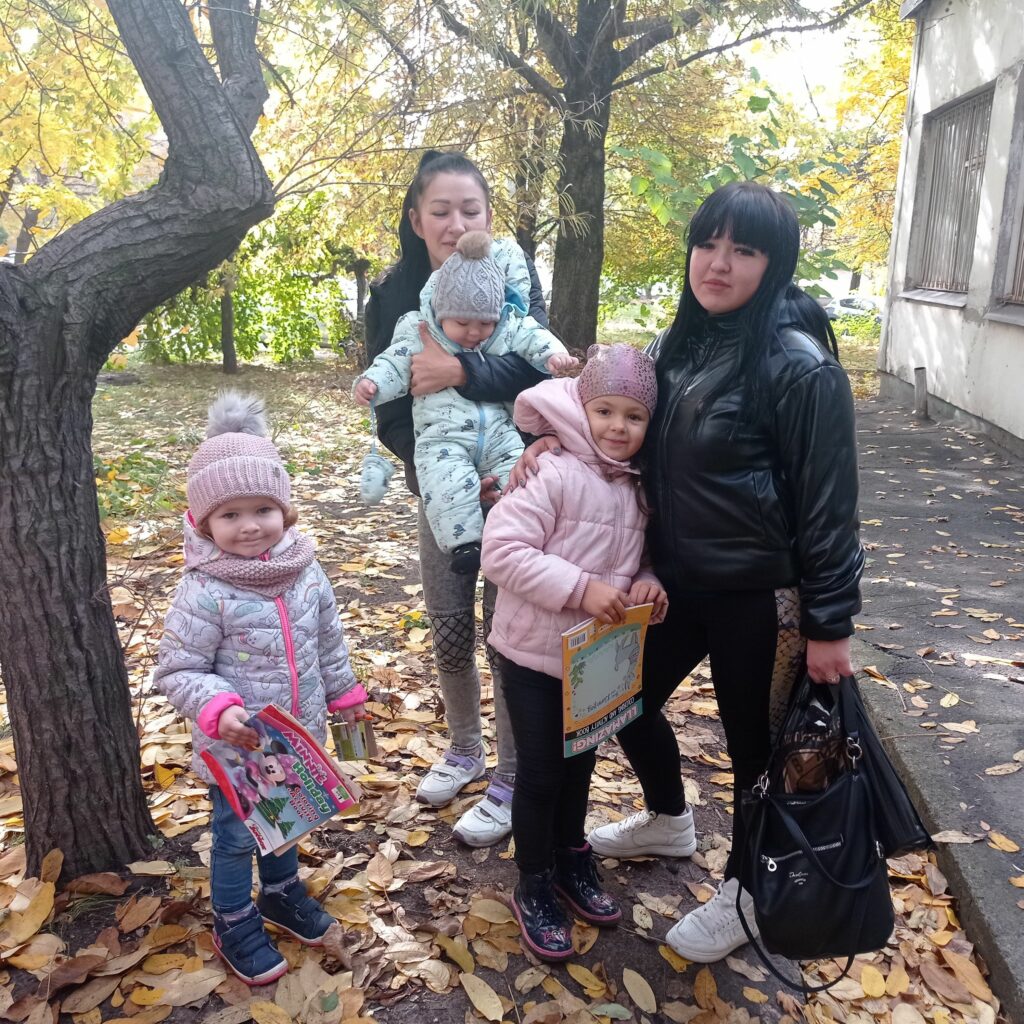
In late 2022, a crying, pale Lilya came to us. Her father had been taken “to the basement”, the mother was ill, the diagnosis was frightening… We had something to help and we tried to comfort her.
Then Lilya posted a cry on her social media page: “Tomorrow is the New Year. But I feel wretched… I’ve cooked and will cook more tomorrow… I’ll celebrate for the kids. But I want to howl… I have no more tears, I cried them all out…. My parents are in the occupied territory, my mother needs an urgent operation – the money was transferred, the Russians took my father a week ago, I don’t know what they are doing to him there, I pray that everything is fine… I don’t want to live, I wish I could return home, rewind everything… I need moral support, because I’ll go crazy… P.S. I’ll share a pack of diapers – maybe good deeds will bring peace to my family.”
How many equally anxious, worried women rushed to advise, hug, support:
“Hold on, girl. Everything will be fine, just believe in your strength, you are a support and a shield for your kids, and everyone knows, Mom is a pillar, a wall and a rock, and a loving dove. Hold on, everything bad ends, and happiness comes, there’s more of it in life, so as not to exhaust a person, we are dosed with it, that’s why life is made of bright or dark stripes…”
“Good deeds do attract good. I used Facebook twice to find donors for my friends. And miraculously, the same woman responded to both posts, saving two lives. And soon she learned that she would have twin grandchildren…”
“#Dad is back “, Lilya wrote later. “Dad was released, Mom died. There are only her photos and a few notes from the past: “My happiness, my children and grandchildren, wishing you health, wealth and happiness… Be happy…”
It’s impossible to arrange a meeting with Lilya: she works three days after three-day rest. When she returns home, the baby doesn’t let go of her… He clung to his mother for five hours… “He’s two years old, I can’t wean him off…” says Lilya. “I’ve been breastfeeding for five and a half years in a row…”
This is the happiness that her mother talked about and wished for. The love she instilled in them.
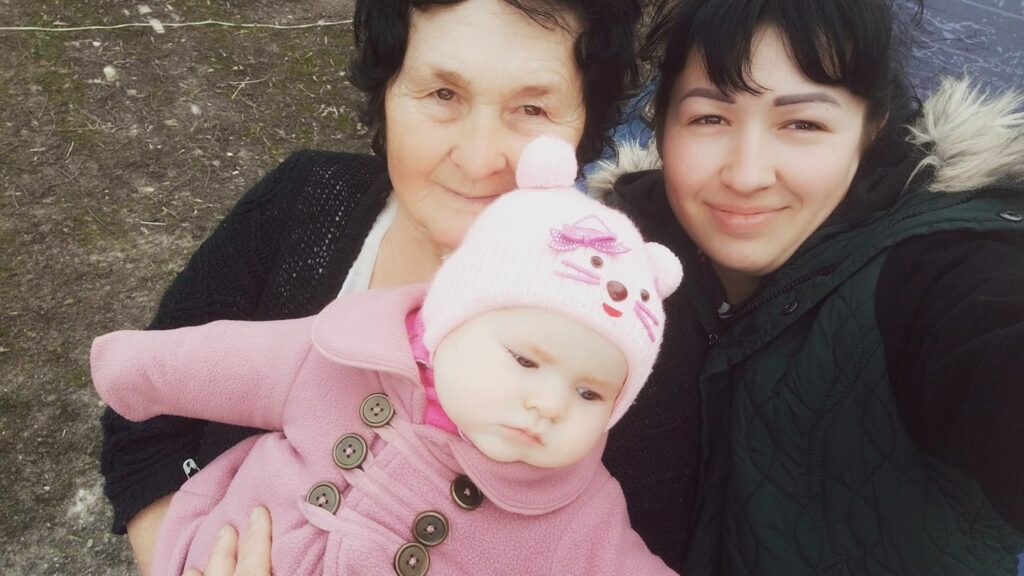
These are real capable women who, despite the war, love, care, raise their kids, give warmth, and literally shield them from Russian bombs and missiles. So, along with our military – those who defend us from murderers, I would also like to mention the names of women who are now raising children. Each of them deserves an award!
And people from captured villages in the Zaporizhzhia region have now moved to the territory of the region free from occupiers. The villages of Mykhailo-Lukashivska, Matviyivska, Petro-Mykhailivska communities are full of new families working on the land. Among them are members of the Council of Women Farmers organization.
They told me a story: a man from Matviyivka volunteered for the Russian-Ukrainian war. He took in a family from Huliaipole to live in his empty house – a single father and two kids… And his unit is currently stationed in the Huliaipole district. Maybe he saw the house the children he sheltered dream of returning to…
Author: Inesa Atamanchuk
*All photos are provided by the author.
Supported by the U.S. Embassy in Ukraine. The views of the authors do not necessarily reflect the official position of the U.S. Government.

